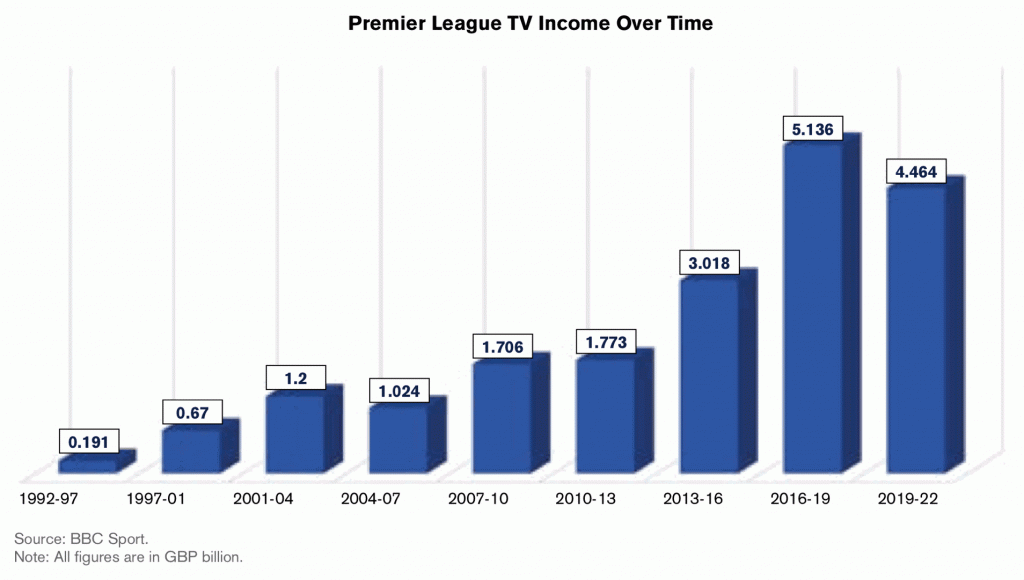DBRS Illustrative Insights newsletter, delivering some of the most important and interesting charts commenting on the global economy through easy-to-read infographics, one at a time. This week, they highlight ‘The potential peak of Premier League TV income’.
Broadcasting revenue has historically been generated from the sale of rights to screen matches on television. It was a key driver behind the foundation of English football’s Premier League in 1992 and its importance has only grown in the decades since. The same holds true for football leagues across Europe.
Over the last couple of decades, the importance of broadcast income to the financial health of European football clubs has grown, overtaking other revenue streams such as matchday and commercial income to become the key source of revenue for most of the continent’s richest clubs.
Nowhere has this explosion in TV cash been more keenly felt than in England’s Premier League with payments from broadcasters Sky and BT Sport (BT) alone helping English clubs rank among the continent’s richest. According to Deloitte’s Football Money League report, as of the 2016/17 season, 14 of the top 30 richest European football clubs by revenue are from the Premier League.

However, as the chart above shows, while broadcasting income has steadily increased year-over-year for over 25 years, the most recent deal to screen Premier League games in the United Kingdom from 2019 to 2022 saw a rare fall of 14% compared with the previous deal. While DBRS notes that this shortfall could be explained by two of the seven packages remaining unsold and is expected to be made up by increased income from the sale of rights to screen Premier League games overseas, with the Chinese and American deals showing significant increases in particular, this drop in revenue is sure to give Premier League clubs pause for thought.
A lack of the competition between Sky and BT that forced the increase of the 2016/19 deal to record levels was evident in this round of negotiations, with those two broadcasters content to remain in their respective positions. Premier League executive chairman Richard Scudamore maintains a sale of the remaining two packages is imminent.
The Premier League is keen to attract new broadcast partners such as Facebook, Amazon, and Google to rekindle this competition and boost the income it can distribute to its clubs. These alternatives to traditional broadcasting have already made inroads into screening other sports globally and would certainly have interest in broadcasting the most watched league of the world’s most watched sport. DBRS notes that if the Premier League is unable to diversify the range of its broadcast partners sufficiently, then record-breaking income from TV deals for Premier League clubs cannot be taken for granted in the future.
For more information on this topic, please read the recently published DBRS commentary on Broadcasting Revenue and Its Impact on the Credit of European Football Clubs.